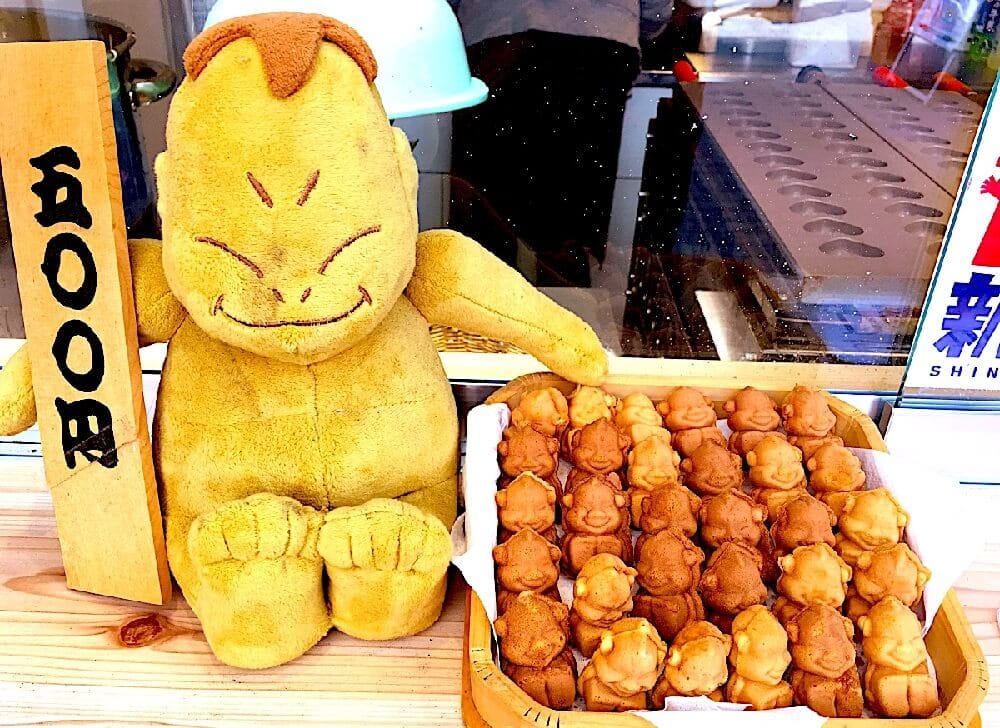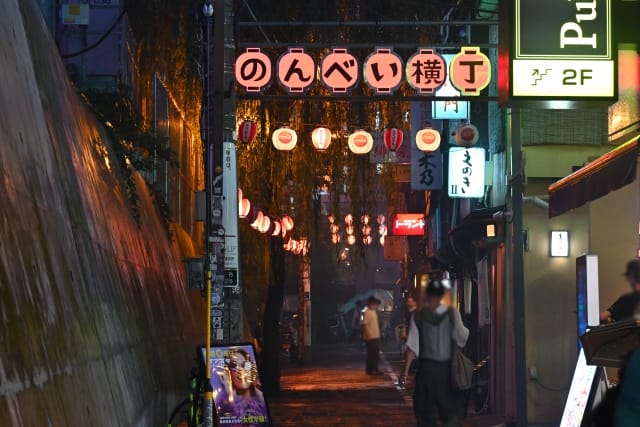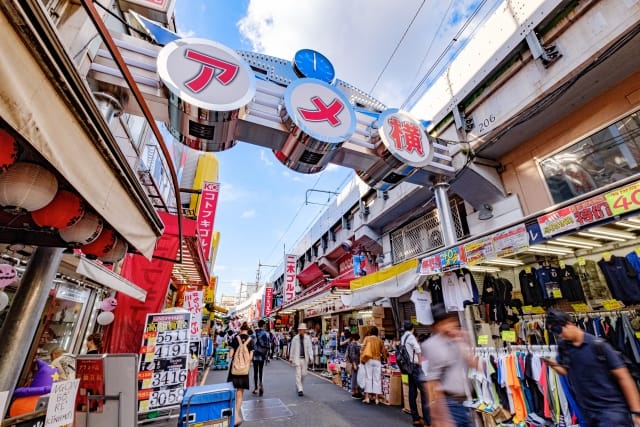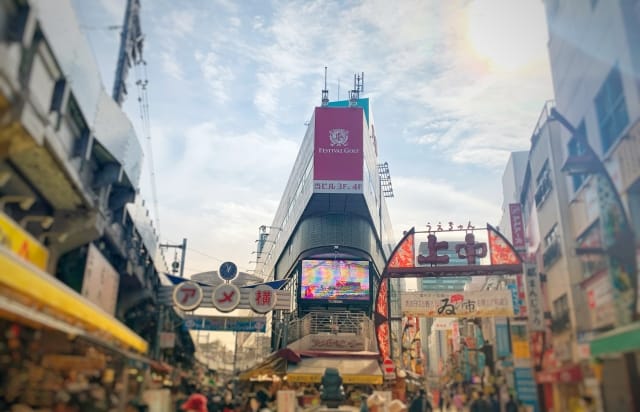Osaka: The Ultimate Guide for International Visitors
Based on my extensive knowledge of Osaka and Kyoto, I've updated this article with the latest information for 2025. I created this update hoping that visitors can use this guide to explore Osaka's attractions more deeply and efficiently, making the most of their time in the city.
Another reason for updating this article is the growing interest in tours that offer a deeper experience of Osaka. While Osaka is known for its developed food culture and numerous excellent restaurants, it can be challenging to find places that are truly beloved by locals.
This is why tours guided by local residents have become popular. In fact, our company Magical Trip's local-guided tours ranked No. 1 among all tours on Tripadvisor in 2024.

For those wanting to savor Osaka's exceptional cuisine, I recommend joining the "Osaka Local Foodie Tour in Dotonbori and Shinsekai." You can fully enjoy Osaka specialties like kushikatsu, takoyaki, and okonomiyaki with guidance from local residents.
If you enjoy drinking, try the "Osaka Bar Hopping Night Tour in Namba," where you can enjoy Osaka cuisine while bar hopping. An expert guide who knows Osaka inside and out will show you around Dotonbori and Namba, areas where it's typically difficult to find good establishments.
I hope you'll be able to fully enjoy Osaka with no regrets by joining the Magical Trip tour!
Introduction
Osaka is the second-largest city in Japan, yet it has a completely different face from Tokyo.
The "flour-based" food culture like takoyaki and okonomiyaki, the nuances of "Kansai dialect" which differ from Tokyo, and the diversity from Osaka Castle to the latest skyscrapers - the variety of this city is endless.
However, the true charm of Osaka isn't just about these surface-level attractions. It's the casual conversations with locals, the changing expressions of the city with each season, and the vast nature that spreads out close to the city. I believe these are what make Osaka truly special.
In this article, I'll share the charms of Osaka from a local's perspective that you won't find in typical tourist guidebooks. I'll cover a wide range of topics, from standard tourist spots to local favorites, ways to enjoy each season, and tips to maximize your Osaka experience.
Furthermore, I'll introduce carefully selected tour information that I can recommend. Through these tours, you should be able to experience a deeper, more authentic Osaka.
I hope that through this article, you'll discover your own "My Osaka" and create lasting memories of your trip!
Table of Contents
・3 Reasons Why Osaka is Popular
・Where Should You Stay in Osaka?
・Recommended Areas and Spots for Tourists in Osaka
・How to Enjoy Osaka in Each Season
・About Osaka's Food Culture
・What Souvenirs are Famous in Osaka?
・Tips for Osaka Sightseeing
・Recommended Tours in Osaka
・Frequently Asked Questions about Osaka Sightseeing
3 Reasons Why Osaka is Popular
There are many reasons why Osaka is loved by both domestic and international travelers, but here are three particularly outstanding charms.
Osaka's Unique Food Culture
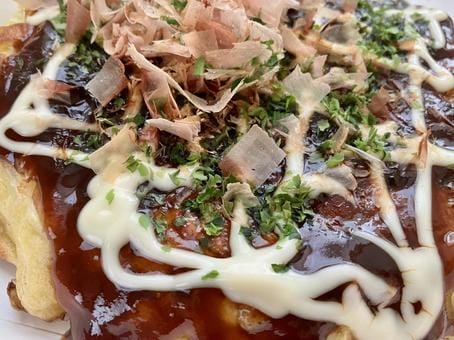
Osaka is called the "city of kuidaore" (eat until you drop), and its food culture stands out from other cities.
First, Osaka specialties like takoyaki, okonomiyaki, and kushikatsu are more than just dishes. They are Osaka's culture itself, deeply rooted in the daily lives of local people. The diversity of "konamon" (flour-based dishes) is particularly eye-opening.
If you'd like to learn more about these "konamon", please take a look at the Osaka Soul Food Guide.
The unique flavors of Osaka's sauces and broths are also noteworthy. The sauce for takoyaki and okonomiyaki, the broth for udon - once you taste them, you'll never forget their distinctive flavors.
Above all, the charm of Osaka's food lies in its "good value for money". Being able to enjoy delicious, affordable food for the common people everywhere is a unique characteristic of Osaka.
Of course, there are high-end restaurants too, but if you want to know the true taste of Osaka, I recommend visiting the popular eateries and street stalls crowded with locals.
Friendliness of Osaka People and Their Unique Dialect
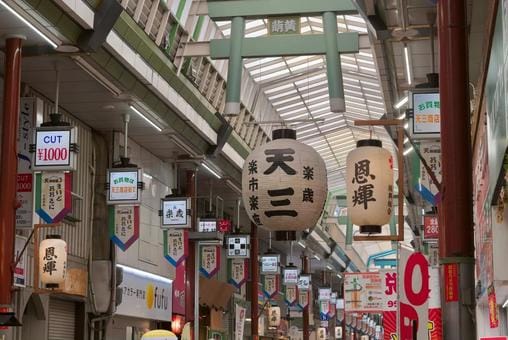
When talking about the charm of Osaka, it's impossible to leave out the personality of Osaka people. When I first moved to Osaka, what impressed me the most was the warmth and friendliness of the people in this city.
The Charm of Kansai Dialect
The Kansai dialect used by Osaka people has more charm than just being a dialect. The intonation and word endings different from standard Japanese might be confusing at first, but you'll surely be fascinated by its rhythm and tempo.
For example, expressions unique to Kansai dialect like "ookini" used instead of "arigatou" (thank you), or "nandeyanen" used when surprised, make communication richer and more interesting.
Comedy Culture
Another characteristic of Osaka is its strong comedy culture. The number of comedians centered around Yoshimoto Kogyo is outstanding nationwide. However, Osaka's comedy culture is not limited to professional comedians.
It's Osaka's culture to incorporate humor into daily conversations. For example, even when buying products at stores, light-hearted exchanges with the shopkeepers are common. This culture of valuing "laughter" creates the bright and fun atmosphere of Osaka people.
The existence of comedy-specific theaters like Namba Grand Kagetsu also tells the depth of Osaka's comedy culture. Here, you can enjoy live performances by professional comedians.
The friendliness and sense of humor of Osaka people warmly welcome visitors to this city and are a major factor in creating unforgettable memories.
Urban Landscape Where History and Modernity Coexist
The third charm of Osaka is its unique urban landscape. Historical buildings and modern architecture harmonize beautifully, creating an appeal that transcends time.
Historical Buildings
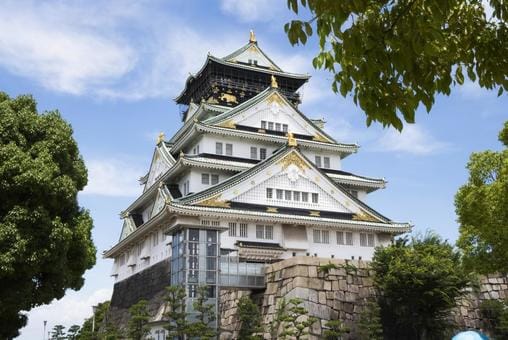
When it comes to historical buildings in Osaka, Osaka Castle is undoubtedly the representative. Built by Toyotomi Hideyoshi, this castle still reigns as the symbol of Osaka.
The view from the castle tower is breathtaking, especially during cherry blossom season in spring when the beauty is indescribable.
Besides Osaka Castle, there are many other historically valuable buildings such as Shitennoji Temple, which flourished as the center of Japanese Buddhism, and Tsutenkaku, known as Osaka's landmark. These buildings are precious heritage that tell the long history and culture of Osaka.
Modern architecture like Osaka City Central Public Hall is also not to be missed. Built in the Meiji era, this building has a unique beauty that fuses Western and Japanese architectural styles.
Modern Urban Landscape
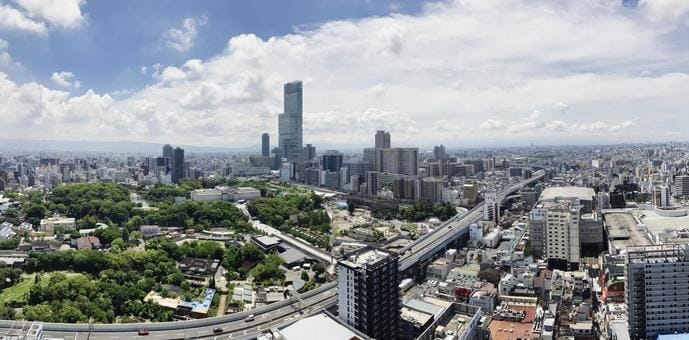
On the other hand, Osaka is also a city where you can enjoy the most cutting-edge urban landscapes. The representative of this is Abeno Harukas, the second tallest building in Japan. From the observation deck at 300 meters above ground, you can enjoy a 360-degree panoramic view of Osaka city.
The futuristic landscape of the Osaka Bay area is also attractive. Around Osaka Port and Tempozan, uniquely shaped buildings stand in a row, and their illuminated appearance at night is particularly magical.
The latest commercial facilities like Grand Front Osaka also represent the modern aspect of Osaka. Not only for shopping, but they also host exhibitions of the latest technologies and events, always full of new stimuli.
Furthermore, illumination events that color the city, such as the "Festival of the Lights" held every winter, are also one of Osaka's charms. The sight of historical buildings and modern architecture enveloped in light is truly a beauty that transcends time.
In this way, Osaka has an urban landscape where history and modernity beautifully harmonize.
Where Should You Stay in Osaka?
Where you stay when visiting Osaka can greatly affect the quality of your trip. Based on my 10 years of experience living in Osaka, I'll introduce two particularly recommended areas.
Characteristics of the Namba/Shinsaibashi Area
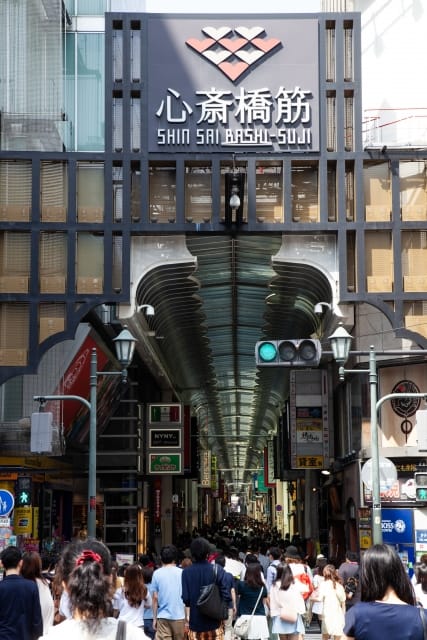
The Namba/Shinsaibashi area is one of the most vibrant neighborhoods in Osaka. Dotonbori, the center of this area, is known as a tourist spot famous for the Glico sign, but that's not all.
This area is home to restaurants of various genres, making it truly a food paradise. From high-end restaurants to popular eateries for the common people, you can find shops in all price ranges.
The strength of this area is that you can casually enjoy Osaka specialties like takoyaki and okonomiyaki.
Also, many shops are open late, making it ideal for those who want to enjoy nightlife. With izakayas open until late at night and karaoke shops operating until morning, this area is like heaven for night owls. I often enjoy the nightlife here with my friends.
Furthermore, the abundance of tax-free shops for foreign tourists is another characteristic of this area. For those who want to enjoy shopping, it's a very convenient location.
If I were to describe the atmosphere of the Namba/Shinsaibashi area in one word, it would be "energetic". If you read the Namba Guide, you'll understand the reasons even better.
The unique atmosphere with flashy signboards and decorations catching the eye is the very essence of "Osaka-ness". I recommend this area for first-time visitors to Osaka or those who want to fully feel the energy of Osaka.
Characteristics of the Umeda Area
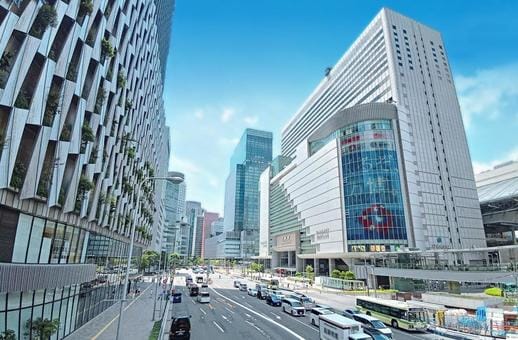
On the other hand, the Umeda area serves as the gateway to Osaka while offering a more refined atmosphere.
The biggest attraction of Umeda is its convenience. It's a transportation hub where JR, Hankyu, Hanshin, and subway lines converge, providing excellent access not only within Osaka City but also to neighboring cities like Kyoto and Kobe.
Especially if you're planning day trips to Kyoto, basing yourself in Umeda is convenient. I often use Umeda as a base when I have friends visiting from other cities.
Also, Umeda area is home to many of the latest large commercial facilities. For those who want to enjoy shopping and gourmet food, it's an ideal environment with places like Grand Front Osaka and Lucua Osaka.
At these facilities, you can enjoy the latest fashion brands and popular restaurants. I often spend my weekends exploring new shops in this area.
Furthermore, from the Floating Garden Observatory of Umeda Sky Building, you can enjoy a spectacular view of Osaka city. The night view, in particular, is breathtaking, allowing you to fully appreciate Osaka's charm as a city.
If I were to describe the atmosphere of the Umeda area in one word, it would be "sophisticated urban". In contrast to the bustling Namba/Shinsaibashi area, it has a more relaxed atmosphere.
As it also has aspects of a business district, you'll often see people in suits.
Which area you choose will depend on your travel style and purpose.
If you want to experience the vibrant downtown culture of Osaka, I recommend the Namba/Shinsaibashi area. If you prefer a more urban and refined atmosphere, the Umeda area is recommended.
To fully enjoy the Umeda area, take a look at the Umeda Guide I wrote.
If you are interested in the best places to stay in Osaka, check the Osaka Hotel Guide! I summarized hotels I recommend and how I felt each place.
Recommended Areas and Spots for Tourists in Osaka
Osaka has many attractive spots, but here I'll introduce spots that I've visited many times during my 10 years in Osaka and confidently recommend to my foreign friends.
From standard tourist attractions to spots popular among locals, and places where you can enjoy nature, I'll convey the diverse charms of Osaka.
Standard Tourist Spots
First, let me introduce the must-visit standard tourist spots in Osaka. These places are important spots that symbolize Osaka's history, culture, and modern face.
Osaka Castle Park
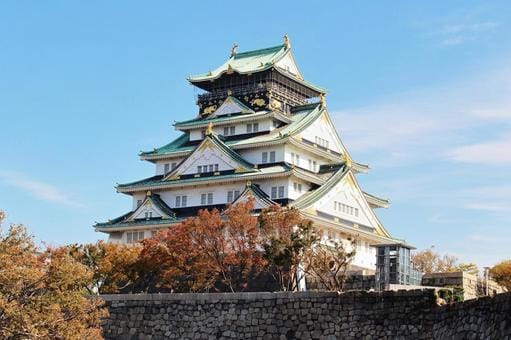
Osaka Castle is known as one of Japan's three great castles and is a historical building. This castle, associated with Toyotomi Hideyoshi, continues to fascinate many people as a symbol of Osaka's history and culture.
Especially during cherry blossom season in spring, about 3,000 cherry trees bloom, creating a spectacular view with the contrast between the castle and the cherry blossoms. The autumn foliage is also beautiful, showing different expressions with each season.
Just strolling in Osaka Castle Park is enjoyable enough, but I recommend climbing up to the castle tower. From the tower, you can overlook the city of Osaka, enjoying a view where Osaka's past and present merge.
Also, there's a museum inside the castle tower with rich exhibits about Osaka's history and culture. I often bring my visiting friends here to learn about Osaka's history.
Access is very convenient, with JR Loop Line "Osakajokoen Station" and subway Chuo Line/Nagahori Tsurumi-ryokuchi Line "Morinomiya Station" nearby. It's also easily accessible from central Osaka and can be sufficiently enjoyed in a few hours.
If you are interested in Osaka Castle, check the Osaka Castle Guide! I summarized in more details and how I felt there.
Website: https://www.osakacastlepark.jp/?lang=en
Dotonbori
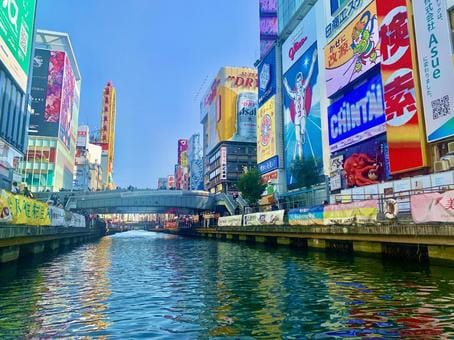
Dotonbori is known as the gourmet sanctuary symbolizing Osaka's "kuidaore" (eat till you drop) culture. The charm of this area lies in its vibrancy and energy.
Flashy signboards, the hustle and bustle of people, and the aroma of food wafting from everywhere - it's a place where you can experience Osaka with all five senses.
The Glico sign and the giant crab of Kani Doraku are famous as symbols of Dotonbori.
These are excellent photo spots, and many tourists take commemorative photos here. It's become a tradition for me to take photos here every time friends or family visit Osaka.
However, the real charm of Dotonbori lies in its rich food culture. Osaka's specialty dishes like takoyaki, okonomiyaki, and kushikatsu are all gathered here. Please also check out the Dotonbori Guide, which introduces more about the food and other attractions in this area.
Also, many shops in Dotonbori cater to foreign tourists with multilingual support, so you can enjoy without worrying about language barriers. My foreign friends have really enjoyed food hopping here.
At night, the charm of Dotonbori increases even more. The cityscape illuminated by neon lights is spectacular, especially the night view from Ebisu Bridge is beautiful. I recommend strolling along the riverside and enjoying Osaka's night.
Access is easy, just a short walk from "Namba Station" on the Osaka Metro Midosuji Line, Yotsubashi Line, and Sennichimae Line.
However, my recommendation is to get off at "Shinsaibashi Station" on the Midosuji Line and walk south through the shopping arcade to Dotonbori. Along this route, you can also enjoy Shinsaibashi-suji Shopping Street, the commercial center of Osaka.
Tsutenkaku and Shinsekai
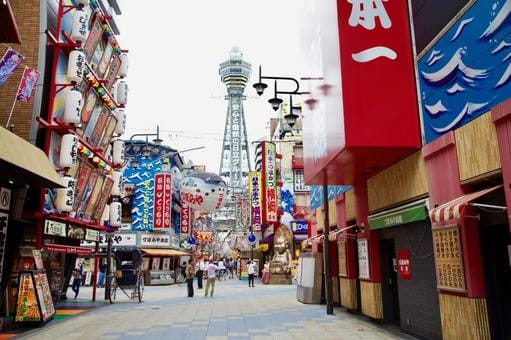
Tsutenkaku and Shinsekai symbolize the downtown culture of Osaka. Tsutenkaku is beloved by many as a symbol of Osaka, and its unique appearance adds color to Osaka's cityscape.
From the observation deck, you can overlook the city of Osaka, and the night view is particularly spectacular. I often take my friends here for a panoramic view of Osaka.
Shinsekai is the neighborhood spread around Tsutenkaku, characterized by its unique townscape with a Showa retro atmosphere.
This area is famous as the birthplace of kushikatsu, and many kushikatsu shops line the streets. For famous kushikatsu restaurants, please check out the Shinsekai Guide as well.
My recommendation is to enjoy kushikatsu with beer at a popular, down-to-earth kushikatsu shop frequented by locals. You can really feel the common food culture of Osaka here.
However, the atmosphere in Shinsekai changes at night, and safety tends to decline. I recommend visiting during the daytime or early evening if possible.
Also, shops used by locals often offer more authentic tastes than those catering to tourists.
Access is most convenient from "Dobutsuen-mae Station" on the Osaka Metro Midosuji Line. It's also accessible via the Sakaisuji Line. If your accommodation is near a JR Loop Line station, using JR Osaka Loop Line "Shin-Imamiya Station" is also a good option.
Kuromon Market
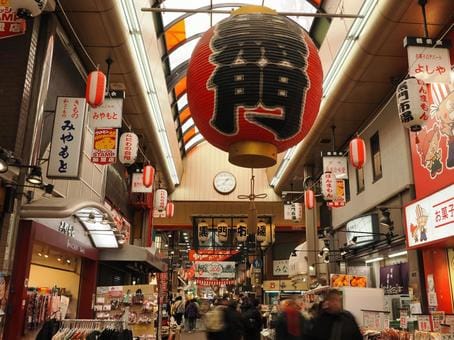
Kuromon Market, known as the kitchen of Osaka, is a market with about 190 years of history. It's not just a market, but I'd say it's the center of Osaka's food culture.
A notable feature of Kuromon Market is the abundance of shops where you can eat while walking, allowing you to casually enjoy takoyaki, kushikatsu, sushi, and more.
My recommendation is to walk through the market and eat a little from shops that catch your eye. This way, you can enjoy various Osaka flavors all at once. For tips on visiting this market and recommended restaurants, please check out the Kuromon Market Guide article.
Access is about a 3-minute walk from "Nipponbashi Station" on the Osaka Metro Sakaisuji Line and Sennichimae Line. However, it's about a 10-minute walk from the Namba area, so I recommend dropping by in conjunction with sightseeing in Shinsaibashi or Dotonbori.
Abeno Harukas
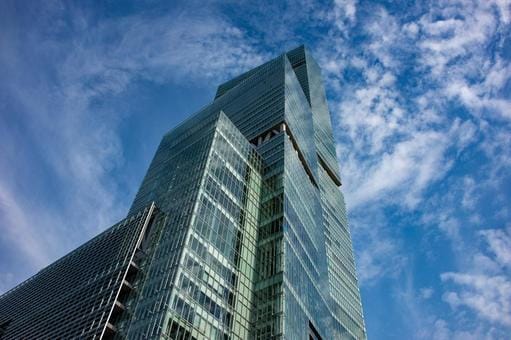
Abeno Harukas is known as the second tallest building in Japan and is Osaka's new landmark.
The observation deck called Harukas 300 is at a height of 300 meters, offering views of not only Osaka city but also Osaka Bay and as far as Kyoto and Kobe on clear days.
The view at dusk is especially spectacular, and I never tire of watching the sun set and the city of Osaka gradually light up. It's become one of my favorite spots to take visitors.
However, the charm of Abeno Harukas isn't just the observation deck. It houses an art museum, various shops, and restaurants, allowing you to enjoy a full day here.
Especially, the Kintetsu Department Store, one of Japan's largest department stores, is like heaven for shopping enthusiasts.
Abeno Harukas is also close to Tennoji Zoo and Shinsekai, so I recommend combining these tourist spots when visiting.
In particular, the contrast between the common atmosphere of Shinsekai and the modern atmosphere of Abeno Harukas can be an interesting experience to feel the diversity of Osaka.
Access is right from "Tennoji Station" on the JR Osaka Loop Line and Osaka Metro Midosuji Line/Tanimachi Line.
Website: https://www.abenoharukas-300.jp/en/
Universal Studios Japan

Universal Studios Japan (USJ) is a world-class theme park in Osaka. I have an annual pass and have visited many times, but each time I find new discoveries and enjoyment, never getting bored.
Of course, there are Hollywood movie attractions, but recently, Nintendo World has become very popular. The feeling of stepping into Mario's world is a wonderful experience that can be enjoyed by children and adults alike.
There are also areas for children like Minions and Sesame Street, making it ideal for families.
Seasonal events are not to be missed either. Special events are held for each season like Halloween and Christmas, changing the atmosphere of the entire park.
I especially like USJ during the Halloween season and look forward to it every year. The Horror Night events are all authentic and enjoyable even for adults.
However, USJ is very popular, so it's important to know tips to avoid crowds. My recommendation is to use the Express Pass. This can significantly reduce waiting times for popular attractions.
Also, visiting on weekdays or right after opening is a good way to avoid crowds.
Please also check out the USJ Guide where I've compiled my tips for exploring this theme park as an annual pass holder.
Access is very convenient, with the nearest station being "Universal City Station" on the JR Yumesaki Line. It's just a short walk from the station. It's about a 15-minute train ride from Osaka Station, so access from central Osaka is also good.
USJ is not just an amusement park, but a place where you can have extraordinary experiences. The feeling of stepping into the world of movies and the thrill of attractions using the latest technology will surely become unforgettable memories.
Website: https://www.usj.co.jp/web/en/us
Spots Popular Among Locals
Osaka has many wonderful spots that may not appear in tourist guidebooks but are loved by locals.
Here, I'll introduce some of my especially recommended local spots that I've discovered during my 10 years of living in Osaka.
Nakazakicho
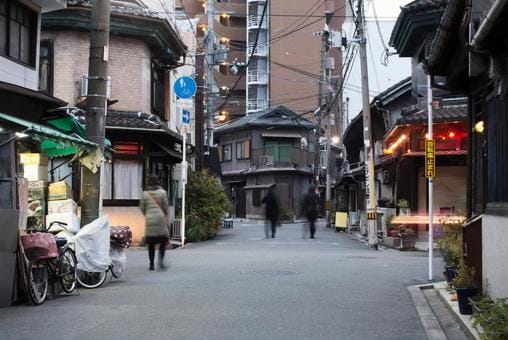
This neighborhood, characterized by its retro-modern townscape, is one of the places I fell in love with soon after moving to Osaka.
The charm of Nakazakicho lies in its unique atmosphere. There are numerous cafes and miscellaneous goods shops renovated from old nagaya (row houses), and just walking around brings exciting discoveries.
Nakazakicho is also gaining attention as a hub for indie music and art. Small live houses and exhibition spaces are scattered around, allowing you to experience works by young artists.
Exploring the photogenic back alleys is another way to enjoy Nakazakicho. There are plenty of spots that make you want to take photos, such as retro buildings, cute signboards, and potted plants placed in the alleys.
If you're aiming for Instagram-worthy shots, I definitely recommend visiting here.
Nakazakicho is a hidden gem popular among young people and foreign tourists, but there's still so much unexplored charm.
My recommendation is to wander around without any specific purpose. You might stumble upon a lovely shop or have a chance encounter with locals.
Access is right from "Nakazakicho Station" on the subway Tanimachi Line. It's also about a 10-minute walk from the Umeda area, so I recommend dropping by during your Umeda sightseeing.
If you are interested in this area, check the Nakazakicho Guide!
Tenma
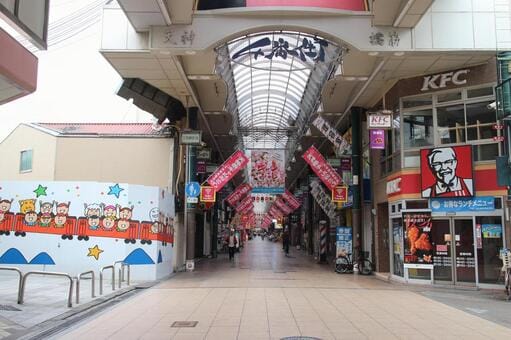
Tenma is an area full of downtown atmosphere in Osaka, and it's one of the places where I feel the true charm of Osaka. The center of this area is Tenjinbashisuji Shopping Street, known as Japan's longest shopping street.
The charm of Tenma lies in its common atmosphere. The scenery that offers glimpses into the daily lives of local people has an appeal that can't be experienced in touristy places.
What I particularly like is walking through the shopping street in the evening. Seeing people shopping on their way home from work and families bustling about, I can feel the lives of Osaka people firsthand.
There are also historical spots scattered throughout Tenma. Especially Osaka Tenmangu Shrine, known as the shrine of the god of learning enshrining Sugawara no Michizane, gets crowded with many worshippers during exam season.
Tenma is also attractive in terms of food. There are many affordable and delicious public eateries and izakayas where you can enjoy the true "taste of Osaka".
Recently, new shops have been increasing amidst the old townscape. Stylish cafes and craft beer shops have become popular among the younger generation.
Access is right from "Tenma Station" on JR Osaka Loop Line, "Ogimachi Station" on the subway Sakaisuji Line, or "Tenjinbashisuji 6-chome Station" on the Tanimachi Line or Sakaisuji Line. It's also easily accessible from within Osaka City, which is another part of its charm.
If you are interested in this area, check the Tenjinbashisuji Shopping Street Guide!
Nakanoshima
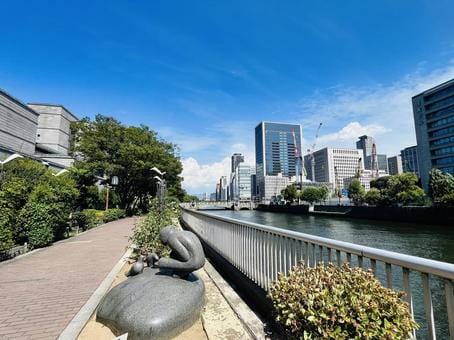
Nakanoshima is an area that has a unique calm atmosphere despite being in the center of Osaka.
The charm of Nakanoshima lies in its beautiful scenery where waterfront landscapes and modern architecture blend.
Especially, Osaka City Central Public Hall is a must-see spot. Its red brick exterior and luxurious interior decorations tell the history and culture of Osaka.
Strolling in Nakanoshima Park is also one of the enjoyments. The park surrounded by rivers allows you to enjoy different sceneries with each season.
Cultural facilities are also abundant. At Osaka Science Museum, you can learn about science while having fun. The planetarium is particularly popular, where you can enjoy stargazing.
Also, at the National Museum of Art, Osaka, you can enjoy contemporary art exhibitions. Although I'm not an art expert, the exhibitions here are always fresh and stimulating to my mind.
At night, the charm of Nakanoshima increases even more. The illuminated scenery is fantastic, especially the view from the riverside promenade is wonderful.
My recommendation is to visit Nakanoshima at dusk and enjoy the changing scenery as the sun sets.
Access is right from "Yodoyabashi Station", "Kitahama Station", or "Naniwabashi Station" on the subway Midosuji Line or Keihan Electric Railway. It's also about a 15-20 minute walk from Umeda, so I recommend dropping by during your Umeda sightseeing.
If you are interested in this area, check the Nakanoshima Guide.
Spots to Enjoy Nature in Osaka
While Osaka has a strong urban image, there are actually many spots where you can enjoy nature. Here, I'll introduce places I've discovered in Osaka that make you forget the hustle and bustle of the city and allow you to enjoy rich nature.
Expo '70 Commemorative Park
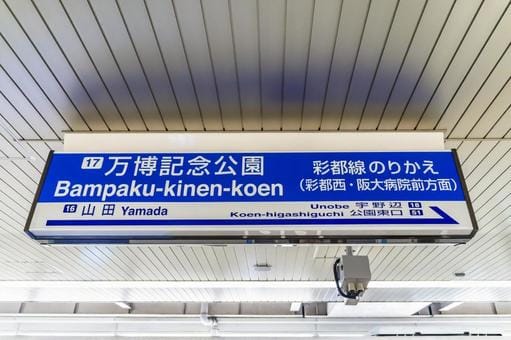
Expo '70 Commemorative Park is a vast park developed on the site of the 1970 Japan World Exposition.
When I first visited here, I was surprised by its vastness and richness of greenery. I remember being moved by the fact that such abundant nature exists not far from the center of Osaka.
There are various facilities in the park, including a Japanese Garden and a Natural and Cultural Garden. The Japanese Garden, in particular, is magnificent, allowing you to enjoy scenery that changes with the seasons.
The Tower of the Sun, the symbol of the park, is famous as one of Osaka's landmarks. This tower with its unique appearance catches the eye even from a distance.
There's also a rose garden in Expo '70 Commemorative Park. Twice a year, in spring and autumn, about 5,000 rose plants bloom, and the experience of being surrounded by their fragrance and colors is exceptional.
There's also a vast lawn area in the park where you often see families and couples relaxing. It's a very luxurious experience to forget the hustle and bustle of the city and spend time surrounded by greenery.
Furthermore, the commercial facility called EXPOCITY adjacent to the park is not to be missed. You can enjoy shopping and dining, making it a place where you can experience nature and urban convenience simultaneously.
Access is right from "Bampaku-kinen-koen Station" on the Osaka Monorail. If coming from central Osaka, I recommend taking the subway Midosuji Line to "Senri-Chuo" and then transferring to the monorail.
Website: https://www.expo70-park.jp/languages/english/
Minoh Park
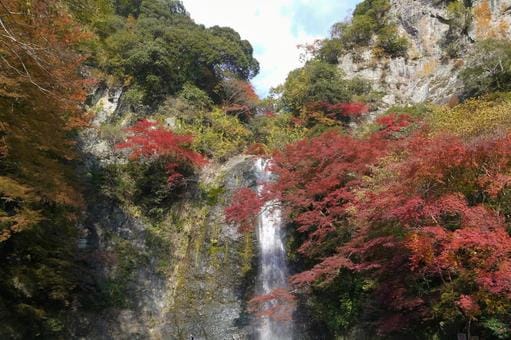
Minoh Park is a place rich in nature that you can reach in about 30 minutes from central Osaka. When I first visited Minoh, I was surprised that such rich nature exists so close by. It's a place where you can forget the hustle and bustle of the city and enjoy a quiet forest bath.
The biggest attraction of Minoh Park is undoubtedly the 33-meter-high Minoh Falls.
The power of this waterfall is breathtaking, especially during rainy seasons or snow melting periods when the water volume increases, showing an even more powerful appearance. You can get close to the waterfall and feel the negative ions with your whole body.
Minoh Park has well-maintained hiking courses that even beginners can enjoy. Along the courses, you can see various plants and small animals, making it possible to enjoy nature observation.
Minoh is also famous as a spot for autumn foliage. From mid to late November, the whole mountain is dyed in red and yellow, with a breathtaking beauty. I visit every year with friends or family for autumn leaf viewing.
During this season, it gets crowded with many people, but you can still sufficiently enjoy the beauty of nature.
Minoh has a specialty called "Momiji no Tempura" (Maple Leaf Tempura). This is maple leaves deep-fried in tempura batter, sold at shops along the waterfall path in autumn.
I was hesitant at first, but once I tried it, I got hooked on its unique flavor. When you visit Minoh, please give it a try.
For access, take the Hankyu Takarazuka Line from Osaka-Umeda Station, transfer to the Hankyu Minoh Line at "Ishibashi-Handai-mae Station", and get off at "Minoh Station". It's about a 30-45 minute walk from the station to the waterfall, but I recommend enjoying nature leisurely as you walk.
If you are interested in parks in Osaka, check the Osaka Hiking Guide!
Bay Area
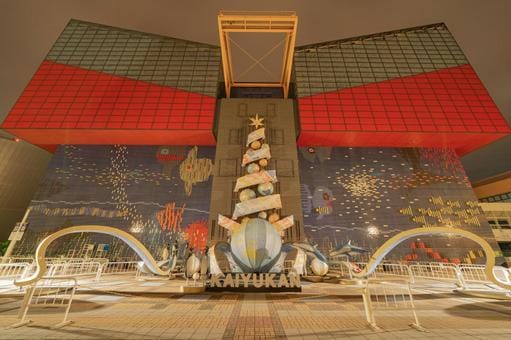
The Osaka Bay Area offers a different, more open atmosphere from the hustle and bustle of the city.
Among the Bay Area, I especially recommend the "Osaka Aquarium Kaiyukan". Known as one of the world's largest aquariums, I'm always amazed by its scale and quality of exhibits.
The sight of whale sharks swimming in the huge tank is breathtaking, and I often lose track of time just watching them.
I love marine creatures and sometimes visit here to relieve stress. Watching the graceful figures of the creatures makes me feel calm.
There's also a large Ferris wheel in the Bay Area. From this 123-meter-high Ferris wheel, you can enjoy a 360-degree panoramic view from Osaka city to Osaka Bay.
The night view is particularly wonderful, offering a romantic atmosphere. I like to spend special days here with my partner. Conversations while watching the twinkling night view always feel more special than usual.
The Bay Area also has "Tempozan Marketplace" where you can enjoy shopping and dining.
Access is a 5-10 minute walk from "Osakako Station" on the Osaka Metro Chuo Line.
The Bay Area has various facilities where you can spend many hours enjoying yourself. Please read our Bay Area Guide to make the most of this area.
Website: https://www.kaiyukan.com/language/eng/
How to Enjoy Osaka in Each Season
Osaka is a city full of charms in every season. Having lived in Osaka for 10 years, I look forward to the change of seasons every year.
Here, based on my experience, I'll introduce how to enjoy Osaka in each season.
Spring (March to May)
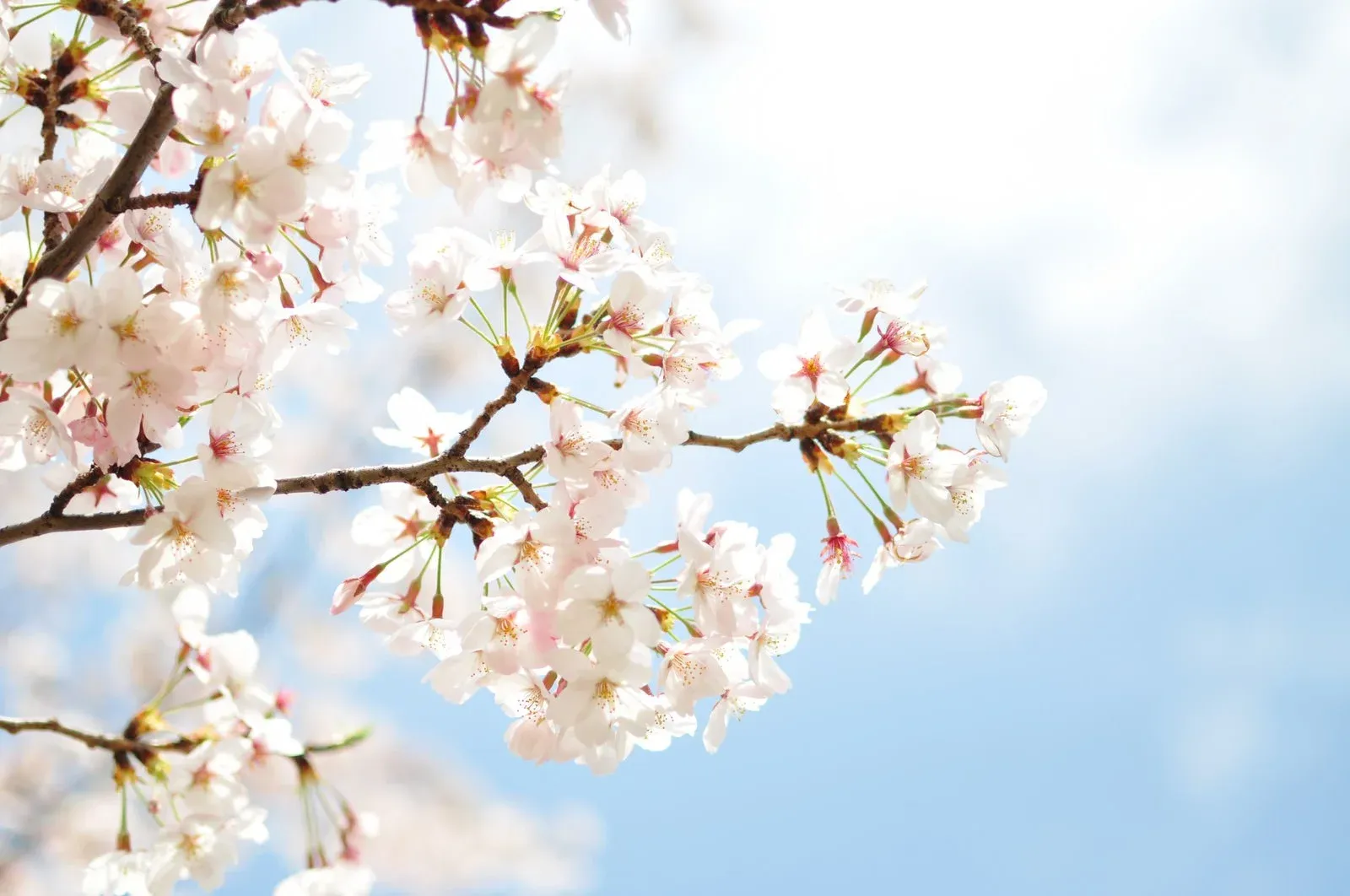
Spring in Osaka starts with the cherry blossom season. Especially in Osaka Castle Park, you can enjoy about 3,000 cherry trees, and the sight is spectacular.
It has become an annual event for me to have a hanami (cherry blossom viewing) picnic with my friends at Osaka Castle Park. Having a picnic under the cherry blossoms and taking photos with Osaka Castle in the background creates the best memories.
Besides Osaka Castle Park, don't miss the "Cherry Blossom Tunnel" at the Japan Mint. Here you can see rare varieties of cherry blossoms, and the experience of walking through a tunnel of cherry blossoms is exceptional.
Even if you miss the cherry blossom season, spring in Osaka has plenty to enjoy. For example, the "Nemophila Festival" is held, and the blue flower field spreading out is breathtakingly beautiful. When I first saw it, I was speechless at its beauty.
Spring has mild weather and is perfect for sightseeing. It's also easy to enjoy outdoor activities, making it an ideal time to walk around the city of Osaka.
If you'd like to know how to enjoy this season, please check out the Osaka Spring Guide and the Osaka Cherry Blossoms Guide.
Summer (June to August)
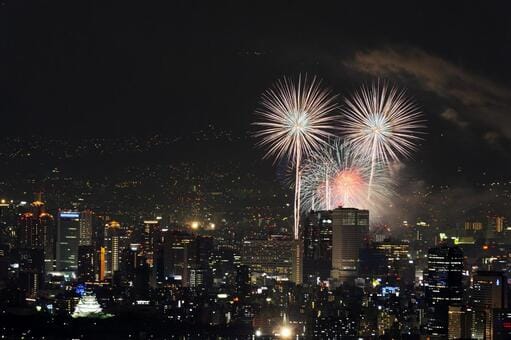
Summer in Osaka is full of heat and excitement. While the temperature rises high, there are plenty of hot events to match.
The Tenjin Festival held in July is known as one of Japan's three major festivals and is Osaka's largest festival.
Especially, the sight of boats progressing on the Okawa River during the boat procession is spectacular, and fireworks light up Osaka's summer night. Walking down the streets lined with food stalls and fully enjoying the festival atmosphere is my annual pleasure.
In August, the "Naniwa Yodogawa Fireworks Festival" is held. The sight of about 6,000 fireworks coloring the night sky is indescribably beautiful.
While measures against the heat are essential, summer in Osaka is full of energy and fun. Please enjoy Osaka's summer to the fullest while being careful of heatstroke.
For events and spots that brighten up hot summer in Osaka, please check out the Osaka Summer Guide and the Osaka Festival Guide.
Autumn (September to November)
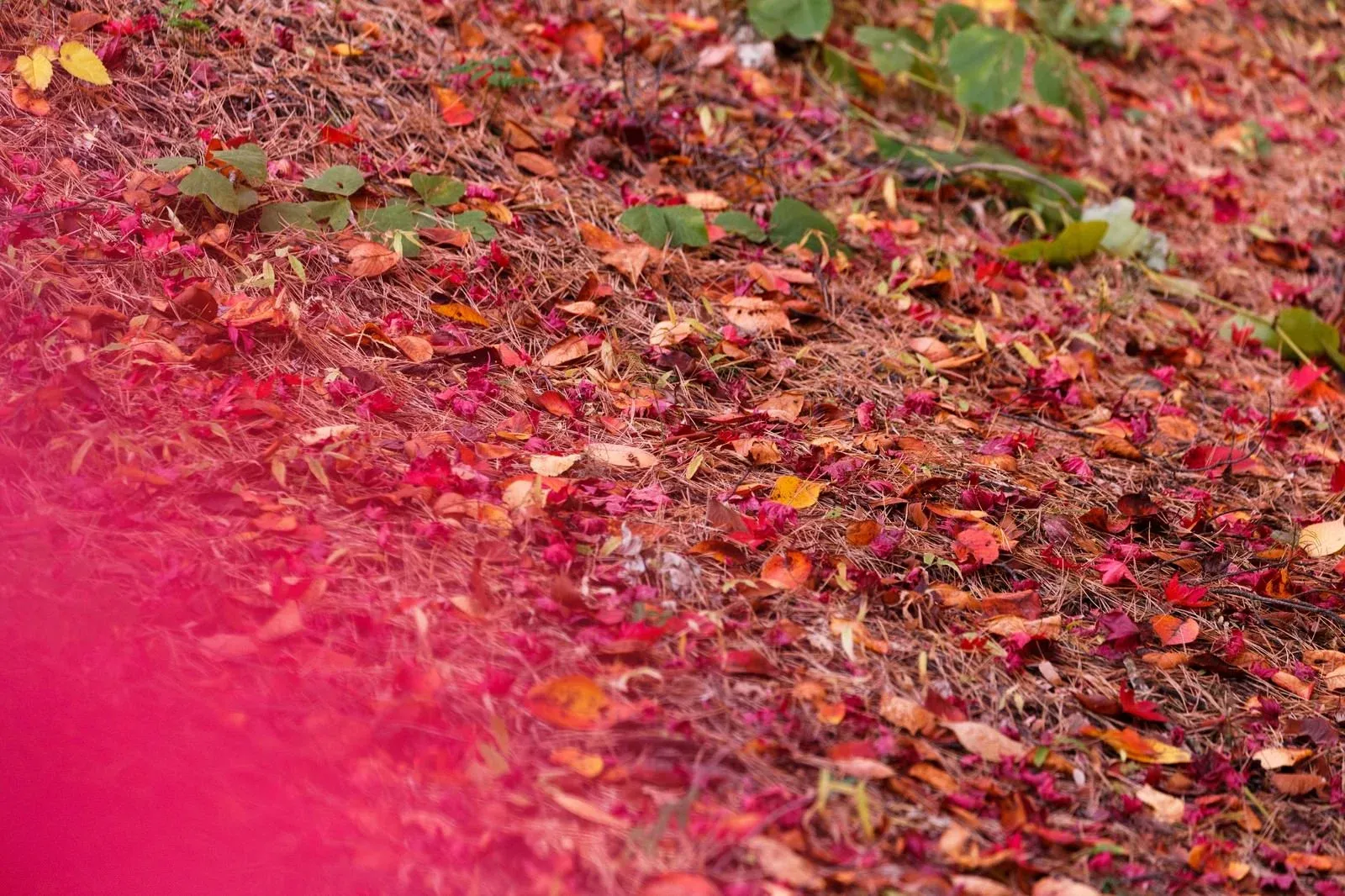
Autumn in Osaka is my favorite season, with comfortable weather, beautiful scenery, and fun events all coming together.
From mid-November to December, you can enjoy autumn foliage in Osaka. Osaka Castle Park and Minoh Park are especially notable spots.
In Osaka Castle Park, the contrast between the autumn leaves and Osaka Castle is beautiful, making it an excellent spot for photography.
The autumn foliage in Minoh Park is also wonderful. The combination of the waterfall and autumn leaves is breathtakingly beautiful, and you can enjoy autumn leaf viewing while hiking.
If you'd like to know about other autumn foliage viewing spots, please check out the Osaka Autumn Guide.
Another charm of autumn in Osaka is the possibility of day trips for autumn leaf viewing to nearby Kyoto and Nara. I think it's a great privilege of Osaka to have Japan's representative autumn leaf spots within about an hour's train ride.
In terms of events, USJ's Halloween events in September and October are highlights. The entire park is dyed in Halloween colors, with cute events during the day and slightly scary events at night.
Food-wise, autumn in Osaka is also a season with many enjoyments. You can enjoy autumn delicacies like Pacific saury, matsutake mushrooms, and chestnuts.
Autumn in Osaka can be said to be the best season for sightseeing, with beautiful nature, fun events, and delicious food all coming together.
Winter (December to February)
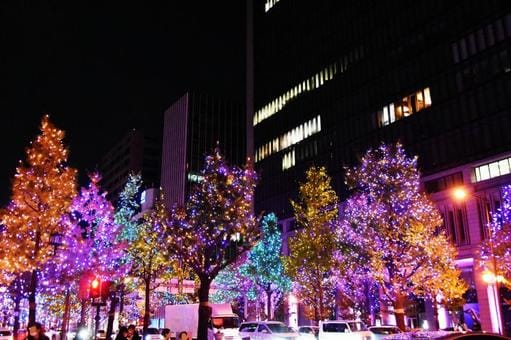
While winter in Osaka is cold, it's a season full of unique charms.
The most impressive thing about winter in Osaka is the "Osaka Festival of Lights". This is an event where illuminations are held at various places in Osaka city, enveloping the entire city in light.
Especially the illumination on Midosuji is spectacular, with a corridor of light continuing for about 4 kilometers, giving you a feeling of stepping into a different world.
Don't miss USJ's Christmas event either. The entire park is dyed in Christmas colors, with plenty to see like a large Christmas tree and shows.
The night illumination is particularly beautiful, perfect for spending time with lovers or family. Every year, I enjoy the Christmas atmosphere here with someone special.
For the New Year, visiting a shrine for "Hatsumode" (first shrine visit of the year) is a traditional Japanese way to enjoy. It's a special experience to welcome the New Year at historical shrines like Osaka Tenmangu or Sumiyoshi Taisha.
Also, flour-based dishes like "takoyaki" and "okonomiyaki" taste even more delicious in Osaka's winter.
To enjoy Osaka during this season, be sure to check out our Osaka Winter Guide.
About Osaka's Food Culture
The characteristic of Osaka's food culture is, above all, "cheap and delicious". Being able to eat truly delicious food at affordable prices for common people is Osaka's strength.
Especially, "konamon" (flour-based dishes) using wheat flour as the main ingredient can be said to represent Osaka's food culture.
Takoyaki
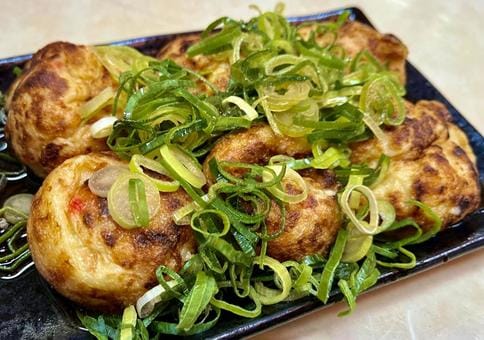
Takoyaki is one of Osaka's representative gourmet foods.
The charm of takoyaki lies not only in its taste but also in how it's made. Watching the skill of the cooks turning the balls on the iron plate is impressive. I've tried it a few times myself, but creating that perfect sphere is really difficult.
In Osaka, takoyaki comes in two main flavors: sauce and soy sauce. My recommendation is to try both.
The sauce flavor is more casual and popular, while the soy sauce flavor gives a slightly more refined impression. Personally, I choose depending on my mood that day.
One of the charms of takoyaki is that it can be easily eaten at street stalls or specialty shops. Especially in Dotonbori and Shinsekai, there are many famous shops.
If you are interested in where to eat Takoyaki, check the Osaka Takoyaki Shop Guide.
Okonomiyaki
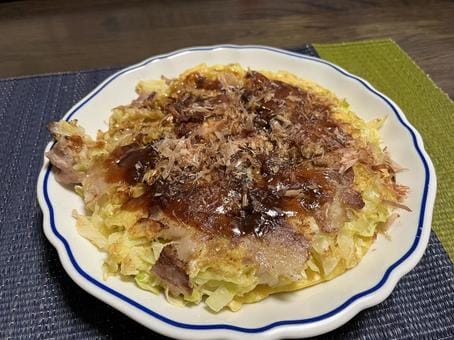
Okonomiyaki is an essential part of Osaka's food culture. I explain okonomiyaki to my foreign friends as an "Osaka-style pancake".
The characteristic of Osaka-style okonomiyaki is that vegetables, pork, and wheat flour are mixed and grilled. The variety of ingredients is rich, and being able to choose your favorites is part of its charm.
The real pleasure of enjoying okonomiyaki is eating it while it's being cooked on the iron plate. When you enter the shop, the aroma of okonomiyaki sizzling on the iron plate right in front of you whets your appetite.
Many shops have a style where you grill it yourself, and cooking and eating together with friends or family is an excellent opportunity for communication.
Among Osaka's okonomiyaki, negiyaki and modan-yaki are particularly noteworthy. Negiyaki is an okonomiyaki filled with plenty of green onions, as the name suggests, and its crunchy texture is addictive.
Modan-yaki is a luxurious dish with yakisoba noodles on top of okonomiyaki. When I first ate it, I thought "This looks so high in calories!", but I quickly became captivated by its deliciousness.
When enjoying okonomiyaki, I recommend finding a down-to-earth shop crowded with locals. While tourist-oriented shops are delicious too, I believe the true charm of Osaka's okonomiyaki can be tasted in shops loved by locals.
If you are interested in where to eat Okonomiyaki, check the Osaka Okonomiyaki Restaurant Guide.
Kushikatsu
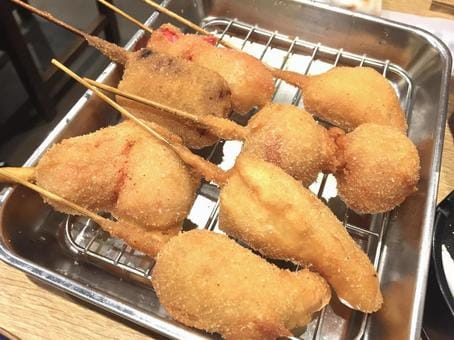
Kushikatsu (Kushiage) is a representative Osaka food famous for originating in Shinsekai.
The most distinctive feature of kushikatsu is the "no double-dipping" rule for the sauce. This rule started for hygiene reasons but has now become a symbol of kushikatsu culture.
There are a wide variety of kushikatsu, from standard beef and pork to vegetables and unusual ingredients.
While there are many kushikatsu shops in Shinsekai, I recommend shops crowded with locals. Large tourist-oriented shops are good too, but eating kushikatsu shoulder-to-shoulder with locals in a small shop has a special charm.
If you are interested in where to eat Kushikatsu, check the Osaka Kushikatsu Restaurant Guide.
What Souvenirs are Famous in Osaka?
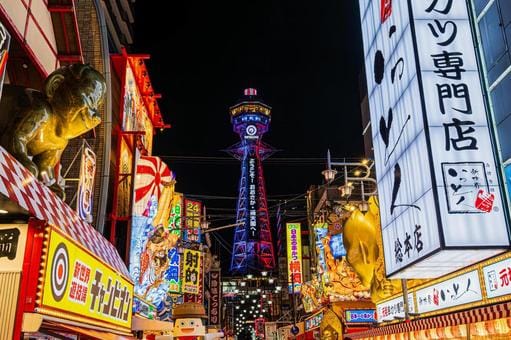
When it comes to Osaka souvenirs, food items are central.
At tourist spots, you can find many visually appealing souvenirs, such as cookies with Tsutenkaku motifs or chocolates shaped like Osaka Castle.
I think these are wonderful souvenirs that you can take home along with memories of Osaka.
USJ souvenirs are also popular. Especially Nintendo World sweets and Minion character goods are loved not only by children but also by adults.
I often buy USJ souvenirs for my nieces and nephews.
However, regarding traditional craft souvenirs other than sweets, honestly, you might find more choices in neighboring Kyoto or Nara.
While Osaka is famous as a city of food, when it comes to traditional crafts, the neighboring ancient capitals boast a richer variety.
My recommendation is to buy food souvenirs in Osaka, and if you have time, search for traditional crafts in Kyoto or Nara. This way, you can taste and take home the diverse charms of the Kansai region at once.
Choosing souvenirs is one of the joys of travel. I hope you find Osaka-specific flavors or memorable items to take home your wonderful experiences from Osaka.
Tips for Osaka Sightseeing
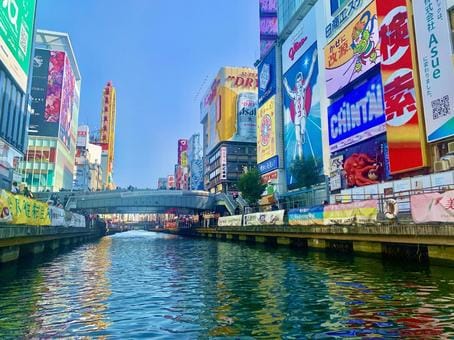
From my experience of exploring Osaka for 10 years, I'll share some tips to make your Osaka sightseeing more enjoyable and efficient. I hope these pieces of advice will help make your Osaka trip more fulfilling.
Utilizing Osaka Metro
Utilizing Osaka Metro (subway) is essential for Osaka sightseeing. I use it daily, and I'm always impressed by its convenience.
First, you can reach most of Osaka's famous spots by Osaka Metro. For example, major tourist areas like Namba, Shinsaibashi, and Umeda are all near subway stations.
I especially recommend the one-day pass. It's very convenient and economical for sightseeing. I always recommend this one-day pass when I guide people around Osaka. You can casually visit various places all day for a fixed price.
If you want to explore Osaka efficiently in a short time, please check out our articles on Osaka One-Day Trip and Half-Day Trip.
Another big advantage is that IC cards (ICOCA, Suica, etc.) can be used. This saves the trouble of buying tickets and allows for smooth travel.
I usually use ICOCA, but my friends' Suica cards from Tokyo or other cities work without problems too.
However, be careful about the last train times. They vary by line, but for most lines, the last train is around midnight.
If you plan to stay out late, I recommend checking taxi options or your accommodation location in advance.
Dining Manners
There are a few manners worth remembering when enjoying Osaka's food culture.
The most famous is the "no double-dipping" rule for kushikatsu sauce. This started for hygiene reasons but has now become part of Osaka's food culture.
Also, saying "itadakimasu" before eating and "gochisousama" after eating is part of Japanese culture. Especially in small family-run shops, exchanging these greetings can lead to warmer communication.
Differences from Tokyo
There are some interesting differences between Osaka and Tokyo. Knowing these can help you enjoy Osaka more deeply.
First, the standing position on escalators is opposite to Tokyo - in Osaka, people stand on the right side.
Also, the seasoning of udon and soba soup is different from Tokyo, with Osaka's being lighter. This is a characteristic of Kansai-style broth.
Regarding transportation IC cards, Tokyo's Suica can be used in Osaka without problems. However, if you purchase Osaka's own ICOCA, you'll find the design interestingly Osaka-like.
Please enjoy these differences and savor the unique experiences of Osaka.
Recommended Tours in Osaka
I believe the best way to get to know Osaka deeply is to join tours guided by locals.
Here are some recommended tours.
If you are interested in Osaka tours, please also check out our article on Top 10 Tours in Osaka.
"Osaka Local Foodie Tour in Dotonbori and Shinsekai" by Magical Trip
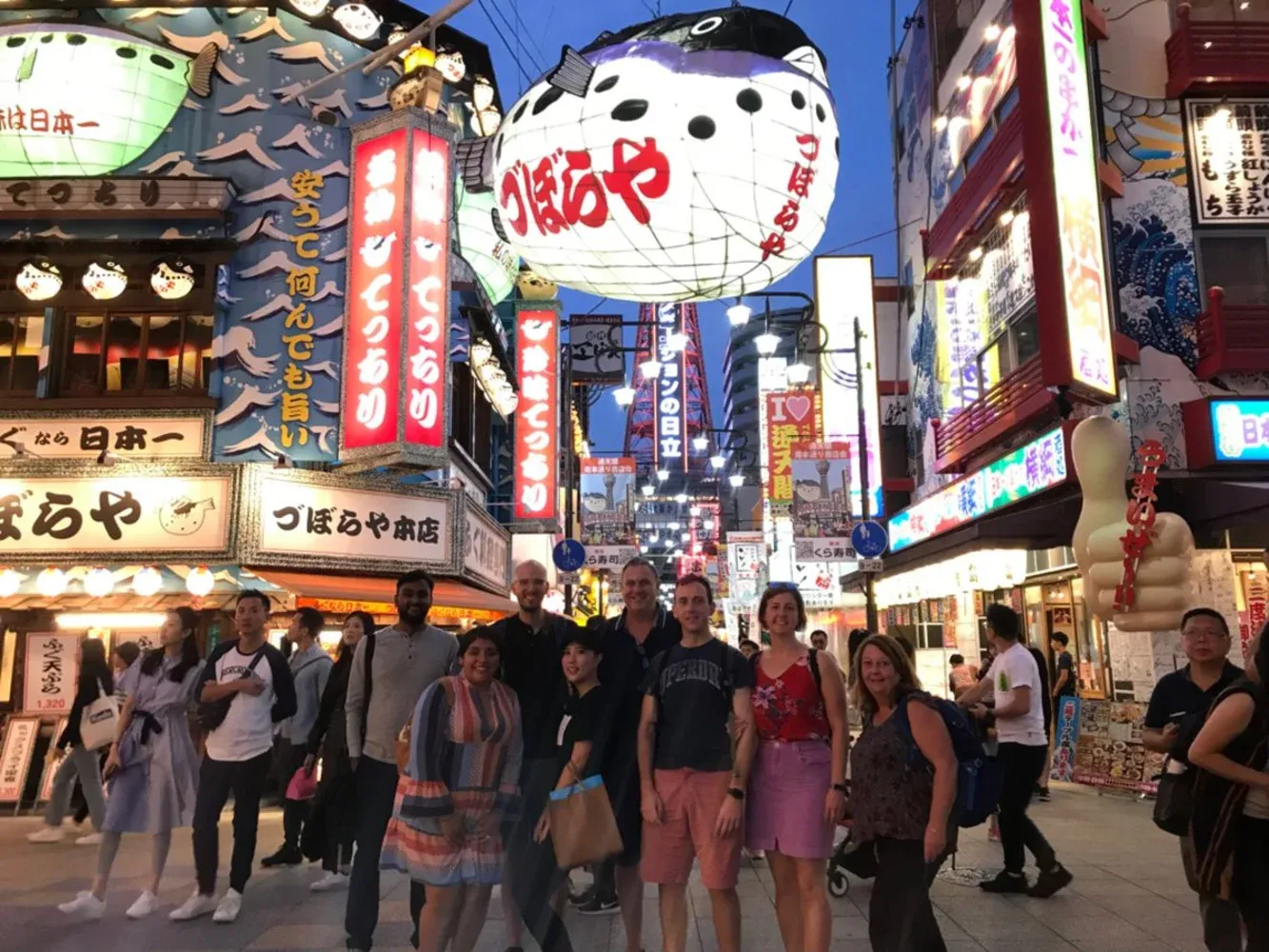
This tour by us at Magical Trip is especially recommended for those who want to fully enjoy Osaka's gourmet food. You can enjoy local delicious cuisine while touring Dotonbori and Shinsekai, two representative downtown areas of Osaka.
The charm of this 3-hour tour is that you can taste Osaka specialties like takoyaki, okonomiyaki, and kushikatsu one after another.
Also, between food tastings, you'll visit nearby shrines, so you can learn a bit about Osaka's history and culture too. I was reminded of Osaka's multifaceted nature when I saw the shrines quietly standing amidst the bustling cityscape.
This tour is perfect for people who want to enjoy Osaka sightseeing + gourmet food. I especially recommend it for first-time visitors to Osaka or those who want to efficiently enjoy Osaka in a short stay period.
Click here for more details: Osaka Local Foodie Tour in Dotonbori and Shinsekai
"Osaka Shinsekai Street Food Tour" by Arigato Travel
Source: Arigato Travel
This tour is recommended for those who want to enjoy Shinsekai at night. You can experience the nighttime face of Shinsekai over 3 hours.
While Shinsekai is enjoyable during the day, it becomes more lively at night, creating a unique atmosphere.
However, as the area isn't very safe at night, using a tour with a local guide is reassuring.
On the tour, you can enjoy Tsutenkaku and Shinsekai's specialty gourmet food. The charm is that you can learn about hidden popular restaurants loved by locals.
If you plan to visit Tsutenkaku or Shinsekai at night, consider this tour.
Click here for more details: Osaka Shinsekai Street Food Tour
"Kuromon Market Walking Street Food Tour in Osaka" by Magical Trip
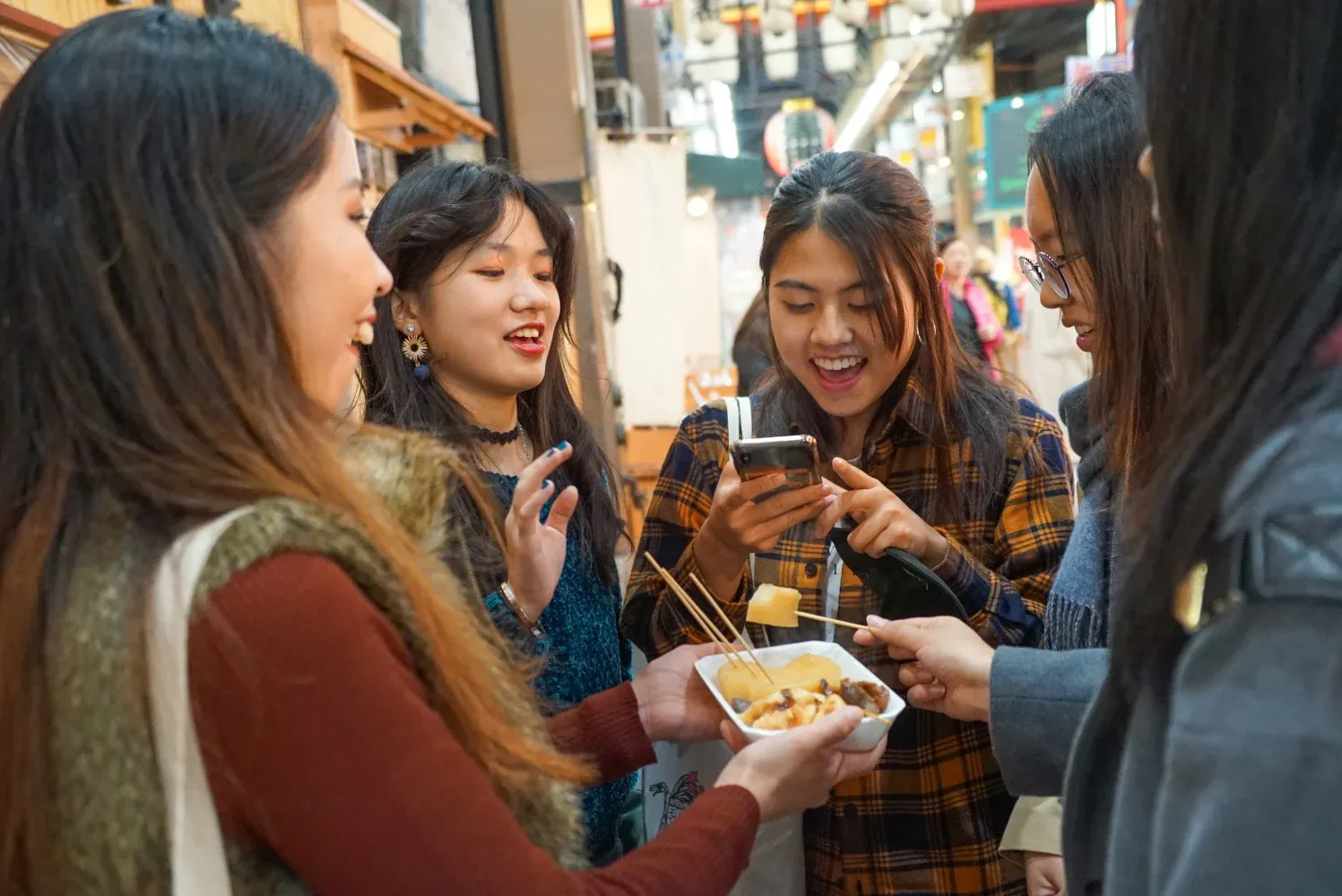
This tour explores Kuromon Market, known as Osaka's kitchen, over 2 hours.
On the tour, you can enjoy local foods starting with takoyaki. The big charm is learning about local favorite shops that you might not notice usually.
You can also enjoy unique kitchen goods shopping. You might find interesting souvenirs like cooking utensils reflecting Japanese food culture.
I think it's very reasonable at $44 per person including 4-5 street food tastings and a local guide. I recommend it for those who want to know Osaka's food culture deeply or touch the daily lives of local people.
Click here for more details: Kuromon Market Walking Street Food Tour in Osaka
"4-Hour Osaka Highlights Bike Tour with Lunch" by Magical Trip
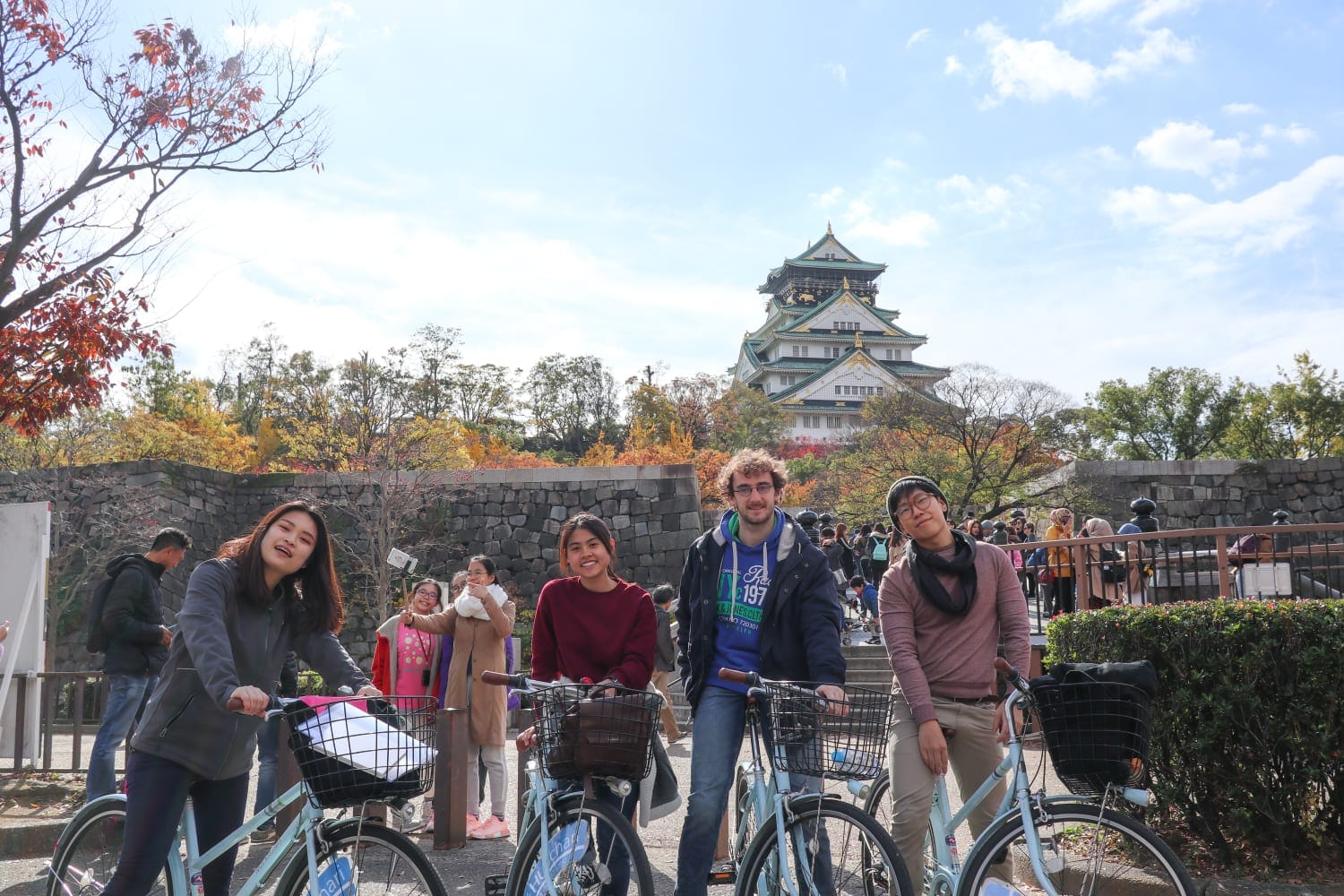
This tour offers a unique experience of cycling around Osaka for about 4 hours, aiming for Osaka Castle.
The charm of exploring the city by bicycle is that you can experience Osaka from a more local perspective, avoiding trains and crowds.
This tour also includes a light lunch and cafe visit. It's a fun experience to take a break at a cafe popular with locals and interact with the local guide.
Using bicycles allows you to go to places you couldn't reach on a normal tour. For example, you can tour every corner of Osaka Castle Park or ride along the riverside cycling road, enjoying Osaka's nature.
The price is about $69 per person, but considering the 4-hour guided tour, bicycle rental, lunch, and unique experience, I think it's a very valuable experience.
Click here for more details: 4-Hour Osaka Highlights Bike Tour with Lunch
These tours are popular, so I recommend booking early, especially during peak seasons.
When visiting Osaka, please try participating in one of the above tours that matches your interests. I'm sure you'll be able to discover the charms of Osaka more efficiently and deeply!
Frequently Asked Questions about Osaka Sightseeing
As someone who has lived in Osaka for 10 years, I often receive questions about Osaka sightseeing from friends and acquaintances. Here, I'll introduce some of the most frequently asked questions and their answers.
How is the Safety in Osaka?
Regarding safety in Osaka, it can be said to be a safe city overall. I've been living in Osaka for 10 years and haven't encountered any major problems.
However, like other big cities, caution is needed in entertainment districts at night. Especially in areas crowded with tourists like Dotonbori and Shinsekai, you need to be careful about pickpocketing and overcharging.
The area around Shinsekai, in particular, isn't very safe at night, so I recommend enjoying it during the daytime if possible. If visiting at night, try to move in groups and walk on well-lit streets with lots of people.
That said, Osaka is a sufficiently safe and fun city if you take basic precautions. The people in the city are friendly, and they often kindly help you when you're in trouble.
What's the Climate Like in Osaka?
The climate in Osaka has distinct seasons, each with its own characteristics.
Summer is hot and humid, especially July and August are extremely hot. When I first moved to Osaka, I was surprised by its sultry heat.
Days with temperatures exceeding 35°C (95°F) are not uncommon. During this season, it's important to take measures against heat stroke. I always make sure to stay hydrated and walk in the shade when going out.
Winter is relatively mild, but it gets cold from January to February. However, it rarely snows enough to accumulate in central Osaka. In my 10 years of living here, I've only seen snow accumulation a few times. It might be a bit warmer compared to Tokyo.
Spring and autumn have comfortable climates and are ideal for sightseeing. The cherry blossom and autumn foliage seasons are particularly beautiful, and I often invite friends out during these times.
The typhoon season (August to October) needs attention. When a large typhoon approaches, public transportation can be disrupted and tourist facilities may close.
If you're planning a trip during this season, I recommend checking weather forecasts frequently.
Overall, I find Osaka's climate pleasant. However, special attention is needed for the summer heat and typhoon season. If you prepare clothes and plans suitable for the season, you can enjoy Osaka throughout the year.
Osaka is a city that shows different charms to each visitor.
People who like history and nature can enjoy Osaka Castle Park and Minoo Park, food lovers can enjoy delicious food in Shinsekai and Dotonbori, and shopping enthusiasts can enjoy trendy fashion in Umeda.
If reading this article has sparked even a little interest in Osaka, please actually visit! Okini (Thank you)!

